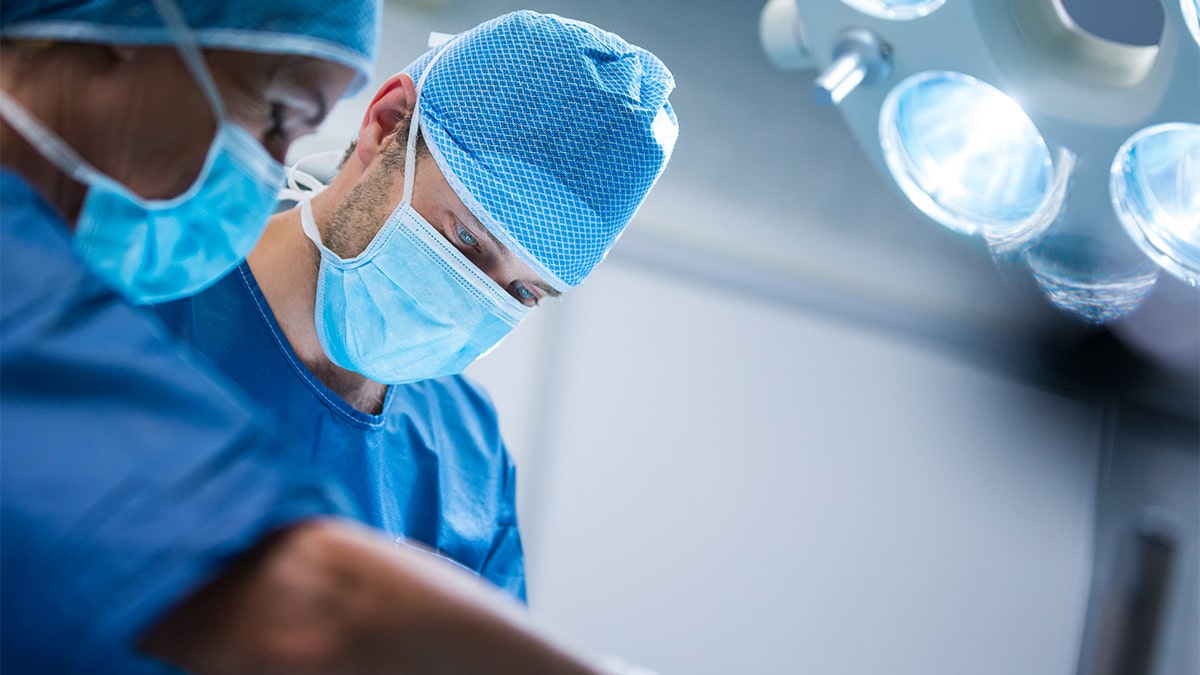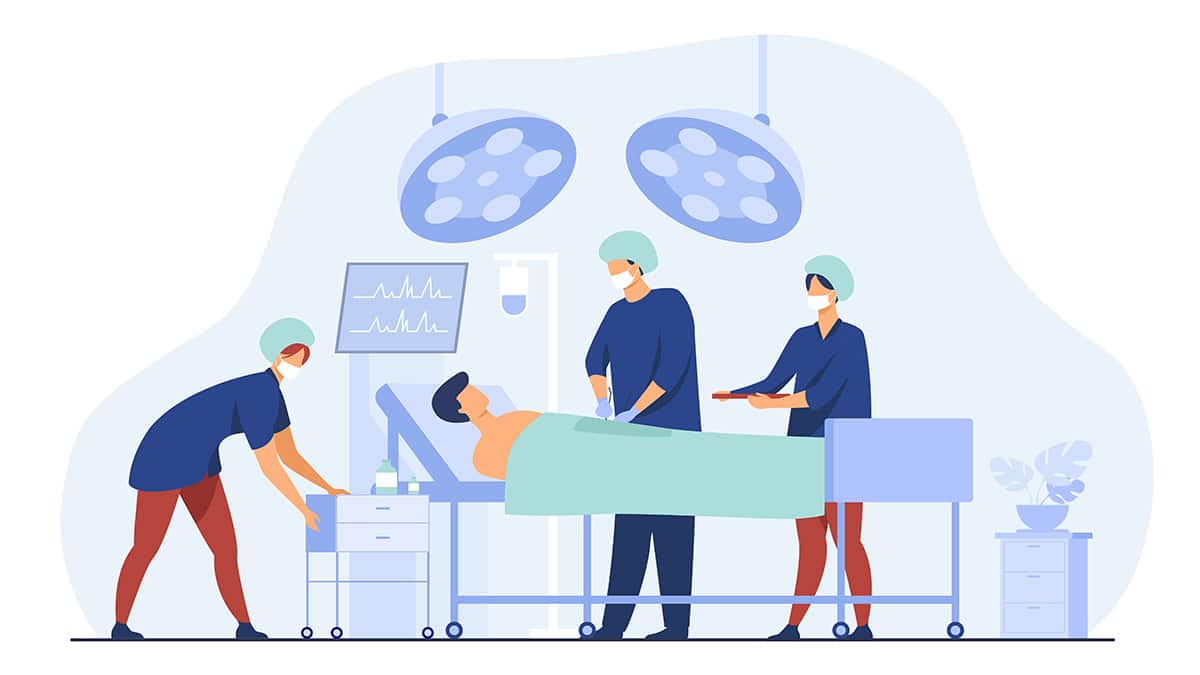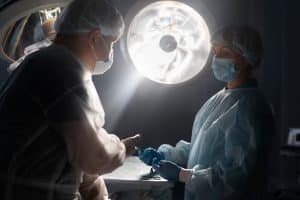Unlock the Secrets of Jaw Surgery: Harnessing the Power of Bone Morphogenetic Proteins (BMPs) for Enhanced Recovery and Regeneration!
Bone morphogenetic protein (BMP) is an isolated protein in our body that enhances a patient’s recovery from jaw surgery.
Do you often find yourself gazing in awe at those radiant smiles, wondering how they came to be? Behind every stunning set of pearly whites lies a world of intricate oral surgeries that are revolutionizing the field of dentistry. And one key ingredient in this transformative process is the bone morphogenetic proteins (BMPs).
If you’re considering jaw surgery or simply fascinated by cutting-edge advancements in dental care, prepare to have your curiosity ignited. In this blog post, we’ll dive headfirst into the realm of BMPs and explore their remarkable benefits in jaw surgeries. From accelerated bone healing to improved treatment outcomes, these tiny powerhouses hold immense potential for transforming lives and restoring both function and aesthetics.
So fasten your seatbelts as we embark on an enlightening journey where science meets artistry – all thanks to the extraordinary wonders of BMPs!
Overview of Jaw Surgeries
Jaw surgeries, also known as orthognathic surgeries, are intricate procedures performed to correct various functional and aesthetic issues related to the jaw structure. Whether it’s correcting bite problems, improving facial symmetry, or addressing congenital abnormalities like cleft palate, these surgeries can be life-changing for patients.
In essence, jaw surgery involves repositioning the upper and lower jaws to achieve proper alignment and balance. This not only improves oral function but also enhances facial aesthetics, creating harmony among all facial features.
Definition of Bone Morphogenetic Proteins (BMPs)
Let’s start by unraveling the mystery behind bone morphogenetic proteins, or BMPs for short. These remarkable substances belong to a group of growth factors that play a crucial role in regulating bone and tissue formation. Found naturally within our bodies, BMPs have the extraordinary ability to stimulate osteogenesis – the process of new bone formation.
What is Bone Morphogenetic Protein?
- Bone Morphogenetic protein (BMP) is an isolated protein that induces specific cells in our body to form new cartilage and bone. It is sometimes used with bone grafting procedures.
- During surgery, the BMP is soaked into and binds with a collagen sponge.
- The sponge is then designed to resorb, or disappear, over time. As the sponge dissolves, the bone morphogenetic protein stimulates the cells to produce new bone.
- The BMP also goes away once it has completed its task of jump-starting the normal bone healing process.
Because there is no need to harvest bone from the patient’s hip for BMP, recipients were spared donor site pain.
Benefits of Bone Morphogenetic Proteins in Jaw Surgeries
Now you might be wondering: how do BMPs fit into all this? Well, buckle up as we explore how these fascinating proteins revolutionize the world of jaw surgeries!
1. Enhanced Bone Regeneration
Role of BMPs in Promoting Osteogenesis
Bone morphogenetic proteins (BMPs) play a crucial role in promoting osteogenesis, or the formation of new bone tissue. In jaw surgeries, these proteins have shown remarkable potential for accelerated bone healing and regeneration.
BMPs stimulate the recruitment and differentiation of mesenchymal stem cells into osteoblasts, which are responsible for building new bone tissue. By enhancing the natural regenerative processes in our bodies, BMPs can significantly improve jaw recovery outcomes.
In jaw surgeries, where there may be significant bone loss or defects, the use of BMPs has been shown to expedite bone healing and regeneration. This is particularly beneficial as it reduces the time patients spend undergoing treatment and enhances their overall recovery experience.
Furthermore, by utilizing BMPs to promote osteogenesis during jaw surgeries, surgeons can ensure a more stable foundation for dental implants. The increased integration between the implant and newly formed bone leads to better functional outcomes and improved long-term stability.
Accelerated Bone Healing and Can Improve Jaw Recovery
Accelerated bone healing also means that patients experience less postoperative pain and discomfort. This not only improves their quality of life during recovery but also contributes to higher patient satisfaction rates after jaw surgery.
Through their ability to promote osteogenesis and accelerate bone healing, BMPs offer significant advantages in improving both functional outcomes and patient experiences in jaw surgeries. Their potential impact on oral and maxillofacial surgery is truly exciting as we continue to explore advancements in this field.
2. Reduced Need for Autogenous Bone Grafts
Bone grafting is a common procedure used in jaw surgeries to repair and regenerate bone tissue. However, traditional bone grafting techniques have their limitations. One major limitation is the need for autogenous bone grafts, which involves harvesting bone from another part of the patient’s body.
Limitations of Traditional Bone Grafting Techniques
The use of autogenous bone grafts can be time-consuming and invasive, requiring an additional surgical site for harvesting the bone. This increases the risk of complications and prolongs recovery time for patients.
Fortunately, advancements in medical technology have provided an alternative solution – Bone Morphogenetic Proteins (BMPs). These proteins play a crucial role in promoting osteogenesis, or the formation of new bone tissue.
By using BMPs as an alternative to autogenous bone grafts, surgeons can reduce or eliminate the need for additional donor sites. This not only simplifies the surgical procedure but also reduces associated risks and postoperative discomfort for patients.
Moreover, BMPs have been shown to accelerate bone healing and regeneration in jaw surgeries. They stimulate cell differentiation and promote blood vessel formation at the site of surgery, leading to enhanced regeneration of healthy bone tissue.
Use of BMPs as an Alternative to Autogenous Bone Grafts
By reducing the need for autogenous bone grafts through the use of BMPs, jaw surgeries become less invasive with shorter surgical times. Patients experience faster recovery and reduced postoperative pain compared to traditional techniques.
BMP technology offers significant advantages over traditional methods when it comes to addressing bony defects in jaw surgeries. It provides a safer alternative to autogenous bone grafting while enhancing both functional outcomes and aesthetics for patients undergoing reconstructive procedures
3. Minimized Surgical Complications
Lower Risk of Donor Site Morbidity
When it comes to jaw surgeries, minimizing surgical complications is of utmost importance. Traditional bone grafting techniques often require the extraction of bone from another part of the patient’s body, known as the donor site. This can lead to potential complications such as pain, infection, and prolonged healing at both the donor and recipient sites.
However, with the use of bone morphogenetic proteins (BMPs), these risks are significantly reduced. BMPs promote osteogenesis, which is the formation of new bone tissue. By using BMPs in jaw surgeries, there is a lower risk of donor site morbidity since there is no need to extract bone from elsewhere in the patient’s body.
Reduced Surgical Time and Associated Risks
Moreover, incorporating BMPs into jaw surgeries also leads to reduced surgical time and associated risks. With traditional techniques that involve autogenous bone grafts, surgeons often have to spend additional time harvesting and preparing the graft material before it can be used. This increases both anesthesia time for patients as well as overall operation duration.
In contrast, using BMPs eliminates this need for harvesting and preparation procedures since they can be directly applied or combined with other materials during surgery. As a result, surgeons can save valuable time in the operating room while reducing associated risks linked with longer anesthesia exposure.
By minimizing surgical complications through decreased donor site morbidity and reduced surgical time and risks associated with traditional techniques like autogenous bone grafting methods, BMP technology has revolutionized oral and maxillofacial surgery by improving patient outcomes.

4. Improved Treatment Outcomes
Enhanced Stability and Longevity of Dental Implants
When it comes to jaw surgeries, one of the key factors for success is achieving optimal treatment outcomes. Fortunately, the use of bone morphogenetic proteins (BMPs) has been shown to significantly enhance these outcomes.
A major benefit of BMPs in jaw surgeries is the enhanced stability and longevity of dental implants. By promoting osteogenesis, BMPs help stimulate new bone growth and integration around dental implants. This results in a more secure foundation for the implant, reducing the risk of implant failure or complications down the line.
Better Functional and Aesthetic Results
Not only do BMPs improve implant stability, but they also contribute to better functional and aesthetic results. The regeneration and remodeling of bone facilitated by BMPs allow for a more natural-looking appearance after surgery. Patients can enjoy improved facial symmetry and restored oral function, leading to increased confidence and overall satisfaction with their treatment outcome.
By utilizing BMPs in jaw surgeries, oral surgeons can provide patients with superior treatment outcomes compared to traditional techniques alone. The combination of enhanced implant stability and improved aesthetics greatly contributes to successful long-term results.
As research continues into BMP technology, we can expect even further advancements in this field. With ongoing studies exploring different formulations and delivery methods, there is potential for even greater improvements in treatment outcomes for patients undergoing jaw surgeries.
Incorporating bone morphogenetic proteins into jaw surgeries leads to improved treatment outcomes through enhanced stability and longevity of dental implants as well as better functional and aesthetic results. As this technology evolves, we can anticipate even more exciting developments that will revolutionize the field of oral and maxillofacial surgery.
5. Expanded Treatment Options
Ability To Address Complex Cases With Compromised Bone Quality
When it comes to jaw surgeries, one of the challenges that surgeons often face is dealing with patients who have compromised bone quality. This can be due to various factors such as trauma, infection, or congenital defects. In such cases, traditional treatment options may not yield satisfactory results.
However, the use of bone morphogenetic proteins (BMPs) opens up new possibilities for addressing these complex cases. BMPs have been found to promote osteogenesis and enhance bone regeneration in a way that surpasses conventional techniques.
Potential Applications in Reconstructive Jaw Surgery
Reconstructive jaw surgeries are typically required for patients who have experienced severe facial trauma or those who were born with craniofacial abnormalities. These procedures aim to restore both the functionality and aesthetics of the jaw.
In recent years, BMPs have emerged as a valuable tool in reconstructive jaw surgeries. By stimulating osteogenesis and accelerating bone healing and regeneration, BMPs allow surgeons to achieve better outcomes even in challenging cases.
The ability of BMPs to overcome limitations related to compromised bone quality expands the treatment options available for patients requiring reconstructive jaw surgery. It offers hope for individuals who previously had few viable solutions and paves the way for more innovative approaches in oral and maxillofacial surgery.
By harnessing the power of BMPs, surgeons now have enhanced capabilities when it comes to treating complex cases with compromised bone quality and performing reconstructive jaw surgeries. The potential applications are vast and hold promise for improving patient outcomes across a wide range of scenarios
6. Cost-Effectiveness
Reduced Need for Additional Surgical Procedures
One of the significant advantages of using bone morphogenetic proteins (BMPs) in jaw surgeries is its cost-effectiveness, which can result in reduced treatment expenses and a lower need for additional surgical procedures.
By promoting enhanced bone regeneration and osteogenesis, BMPs help accelerate the healing process after jaw surgeries, reducing the likelihood of complications or setbacks that could require further interventions. This means fewer follow-up procedures, saving patients both time and money.
Moreover, BMPs offer an alternative to autogenous bone grafts, which are often costly and involve harvesting bone from another part of the patient’s body. Using BMPs eliminates the need for this additional surgery and reduces associated expenses,
Not only do BMPs minimize the number of required surgical procedures but they also contribute to shorter overall treatment times. The accelerated bone healing provided by these proteins allows patients to recover faster, reducing hospital stays or postoperative care requirements.
Lower Overall Treatment Costs Compared to Traditional Techniques
From a financial standpoint, this translates into cost reductions as shorter hospital stays equate to lower medical bills and related expenses. Additionally, with quicker recovery times comes less time off work or away from other obligations – another potential financial benefit for patients undergoing jaw surgeries.
Utilizing BMPs in jaw surgeries offers not only improved outcomes but also cost-effectiveness by minimizing additional surgical procedures and lowering overall treatment costs when compared to traditional techniques.

7. Safety Profile
FDA-Approved Use in Dental and Maxillofacial Surgeries
When it comes to any medical procedure, safety is of utmost importance. And in the case of jaw surgeries, using bone morphogenetic proteins (BMPs) offers a high level of safety. One key aspect that contributes to their safety profile is the fact that BMPs have been FDA-approved for use in dental and maxillofacial surgeries.
The FDA approval indicates that extensive research and testing have been conducted to ensure the effectiveness and safety of BMPs in these procedures. This regulatory approval provides reassurance to both patients and healthcare professionals regarding the use of BMPs in jaw surgeries.
Furthermore, when used appropriately, BMPs demonstrate minimal adverse effects. This means that patients undergoing jaw surgery can expect fewer complications or negative reactions associated with the use of BMPs. The proper administration and dosage, as determined by your oral surgeon, greatly reduce any potential risks or side effects.
Minimal Adverse Effects When Used Appropriately
It’s important to note that while rare, there may be some instances where certain individuals experience specific reactions or complications due to individual factors such as allergies or underlying health conditions. However, overall studies have shown a favorable safety profile for BMPs when utilized correctly.
In conclusion – Safety is paramount in any surgical procedure but particularly so in dental and maxillofacial surgeries involving the jawbone. With their FDA approval and minimal adverse effects when used properly , bone morphogenetic proteins (BMPs) provide a safe option for enhancing bone regeneration during jaw surgeries
8. Patient Satisfaction
Improved Postoperative Recovery and Reduced Pain
Patient satisfaction is a crucial aspect of any medical procedure, including jaw surgeries. When it comes to postoperative recovery, bone morphogenetic proteins (BMPs) play a significant role in improving patient outcomes. One of the main benefits is improved postoperative recovery and reduced pain experienced by patients.
After undergoing jaw surgery, patients often face challenges during their recovery period. However, with BMPs promoting enhanced bone regeneration and accelerated healing, patients experience faster healing times and reduced discomfort. This can lead to an overall improvement in their quality of life during the recovery phase.
Enhanced Quality of Life With Restored Jaw Function and Aesthetics
Moreover, restored jaw function and aesthetics are key factors contributing to patient satisfaction after jaw surgery. BMPs aid in promoting osteogenesis and bone regeneration in the jaws, resulting in better stability for dental implants or other prosthetic devices used during reconstruction procedures. As a result, patients can regain proper chewing ability and speech clarity while also enjoying improved facial aesthetics.
By addressing both functional and aesthetic concerns simultaneously, BMPs contribute significantly to patient satisfaction following jaw surgeries. Patients can have increased confidence in their appearance while also experiencing improved functionality when eating or speaking.
In Conclusion
The use of bone morphogenetic proteins (BMPs) in jaw surgeries offers numerous benefits that contribute to overall patient satisfaction. Improved postoperative recovery leads to reduced pain levels for patients undergoing these procedures.
Recap of Benefits of BMPs in Jaw Surgeries
In this article, we have explored the numerous benefits that bone morphogenetic proteins (BMPs) bring to jaw surgeries. From enhanced bone regeneration to reduced surgical complications and improved treatment outcomes, BMPs have revolutionized the field of oral and maxillofacial surgery.
Emphasize Their Role in Advancing the Field of Oral and Maxillofacial Surgery
One of the key advantages of BMPs is their ability to promote osteogenesis, leading to accelerated bone healing and regeneration in jaw surgeries. This not only speeds up recovery but also ensures a stronger foundation for dental implants or other restorative procedures.
By reducing the need for autogenous bone grafts, which are associated with limitations and potential complications, BMPs offer a valuable alternative in addressing compromised bone quality during jaw surgeries. This not only saves time but also reduces additional surgical procedures and overall treatment costs.
Moreover, by minimizing surgical complications such as donor site morbidity and risks associated with prolonged surgery time, patients can experience improved postoperative recovery with reduced pain. The functional and aesthetic results achieved through the use of BMPs contribute significantly to patient satisfaction by restoring both jaw function and aesthetics.
Furthermore, BMP technology opens up new possibilities for treating complex cases requiring reconstructive jaw surgeries. With its ability to address compromised bone quality effectively, surgeons can now tackle challenging cases with better success rates.
Future directions and potential advancements in BMP technology.
Considering its safety profile as FDA-approved for dental and maxillofacial surgeries along with minimal adverse effects when used appropriately, it is clear that BMPs provide a reliable solution in promoting successful outcomes in jaw surgeries.
Emphasizing their role in advancing oral and maxillofacial surgery practices cannot be understated. As more research continues on the application of these proteins within this field, future directions hold immense promise for further advancements in technique refinement and technological improvements regarding BMP delivery systems.
Bone morphogenetic proteins (BMPs) play a crucial role in improving recovery from jaw surgeries through enhanced bone regeneration, reduced surgical complications, and improved treatment outcomes.






